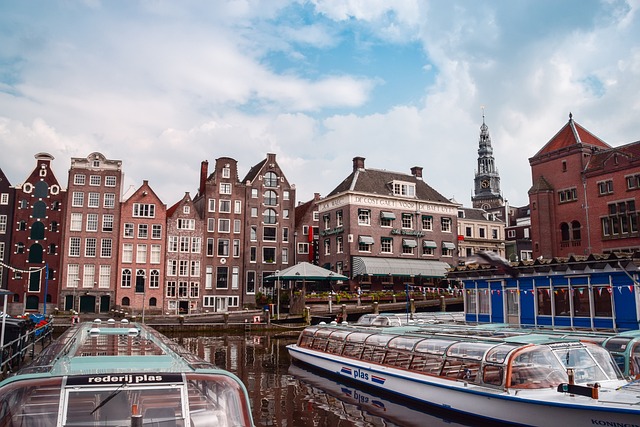Cost of Living in Belgium: What to Expect

Belgium, nestled in the heart of Western Europe, is a country renowned for its rich cultural heritage, stunning architecture, and high standard of living. Whether you’re planning a short-term visit or considering a long-term stay, understanding the cost of living in Belgium is crucial for managing your budget effectively. From housing and transportation to food and entertainment, here’s a comprehensive guide to what you can expect.
1. Housing Costs
Housing is typically the largest expense for residents and expats in Belgium. Prices vary significantly depending on the city, neighborhood, and type of accommodation.
- Rent:
- In major cities like Brussels, Antwerp, and Ghent, renting an apartment can be relatively expensive. A one-bedroom apartment in the city center costs between €800 and €1,200 per month, while outside the city center, it ranges from €600 to €900.
- Smaller towns like Liège, Bruges, or Leuven tend to have lower rental prices, with one-bedroom apartments starting at around €500 per month.
- Utilities:
- Monthly utility bills (electricity, heating, cooling, water, garbage) for an 85m² apartment average around €150–€200. Internet services cost approximately €40–€60 per month.
- Buying Property:
- If you’re considering purchasing property, expect to pay anywhere from €2,500 to €5,000 per square meter in Brussels, while prices in smaller cities are generally more affordable.
2. Food and Groceries
Belgium offers a mix of affordable local produce and higher-end imported goods. Eating out can also vary greatly depending on where you dine.
- Groceries:
- Shopping at supermarkets like Carrefour, Delhaize, or Lidl will help keep grocery costs manageable. On average:
- A loaf of bread costs about €1.50–€2.
- A liter of milk is around €1.
- Fresh vegetables and fruits are reasonably priced, with seasonal items being cheaper.
- Belgian specialties like chocolate and beer may cost slightly more but are worth indulging in occasionally.
- Shopping at supermarkets like Carrefour, Delhaize, or Lidl will help keep grocery costs manageable. On average:
- Dining Out:
- Eating at casual restaurants or cafes is moderately priced. A meal at an inexpensive restaurant costs around €12–€18, while a three-course dinner for two at a mid-range restaurant might set you back €50–€70.
- Street food, such as frites (fries) or waffles, is both delicious and budget-friendly, costing €3–€6 per serving.
3. Transportation
Belgium has an efficient public transportation system, making it easy to get around without needing a car.
- Public Transport:
- A single metro, bus, or tram ticket in Brussels costs around €2.50, while monthly passes range from €50 to €70.
- Trains are another popular option, especially for intercity travel. A second-class train ticket between Brussels and Bruges costs approximately €15–€20.
- Cycling:
- Cycling is a common mode of transport in Belgium, with many cities offering bike rental services for as little as €10–€15 per day.
- Owning a Car:
- While owning a car provides flexibility, it comes with additional costs, including fuel (around €1.80 per liter), insurance (€600–€1,200 annually), and parking fees (€2–€4 per hour in city centers).
4. Healthcare
Belgium boasts a high-quality healthcare system that is accessible and affordable.
- Health Insurance:
- The Belgian government mandates health insurance for all residents. Contributions are income-based, averaging around 7.35% of your gross salary.
- Most medical consultations, hospital stays, and prescriptions are partially covered by insurance, leaving patients to pay only a small percentage out-of-pocket.
- Dental Care:
- Basic dental procedures are included in the public health system, though cosmetic treatments may require private insurance or full payment upfront.
5. Education
Education costs depend on whether you choose public or private institutions.
- Public Schools:
- Public schools in Belgium are funded by the government and charge minimal fees. Primary and secondary education is virtually free, except for small administrative costs.
- International Schools:
- For expat families, international schools offer English-language curricula but come with hefty price tags, ranging from €10,000 to €25,000 per year.
- Higher Education:
- University tuition fees for EU/EEA students are low, typically ranging from €800 to €4,000 per year, depending on the program. Non-EU students face higher fees, often exceeding €8,000 annually.
6. Entertainment and Leisure
Belgium offers a wide range of activities to suit various budgets.
- Cultural Activities:
- Museums and galleries often have discounted or free entry days. For example, many museums in Brussels offer free admission on the first Wednesday of the month.
- Movie tickets cost around €10–€12, while theater performances start at €20.
- Nightlife:
- Bars and pubs are abundant, with beer prices averaging €3–€5 per pint. Nightclubs usually charge entrance fees of €10–€20, excluding drinks.
- Sports and Fitness:
- Gym memberships cost approximately €30–€50 per month, while outdoor activities like hiking or cycling are virtually free.
7. Miscellaneous Expenses
Other daily expenses include:
- Internet and Mobile Plans:
- High-speed internet plans cost around €40–€60 per month. Prepaid mobile plans start at €10–€15 for limited data and calls.
- Clothing and Personal Care:
- Clothing prices are comparable to other Western European countries. A pair of jeans costs around €50–€80, while a haircut ranges from €15–€30.
- Childcare:
- Daycare services for infants and toddlers can be expensive, averaging €800–€1,200 per month.
8. Regional Variations
The cost of living varies across different regions in Belgium:
- Brussels: As the capital and largest city, Brussels tends to be the most expensive, particularly for housing and dining.
- Flanders (e.g., Antwerp, Ghent): Cities in Flanders are slightly less costly than Brussels but still rank among the pricier areas.
- Wallonia (e.g., Liège, Namur): Southern Belgium generally has a lower cost of living, making it attractive for budget-conscious individuals.



